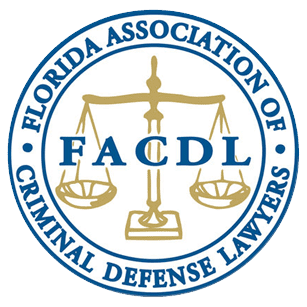
If you’ve been charged with a crime, you may qualify for withholding of adjudication. This type of case outcome isn’t a conviction, but it isn’t an acquittal or a dismissal of your charges either. Rather, when a judge withholds adjudication, they sentence you to probation without formally convicting you of any crime.
Receiving a withhold of adjudication is better than getting a conviction. However, if you know you are innocent, and if there is good evidence supporting that proposition, it may be in your interest to seek an acquittal or the dismissal of your charges.
What Are the Advantages to Withholding Adjudication?
A withhold of adjudication is not a perfect outcome to your criminal case, but it does present some advantages:
- It’s not a conviction – You don’t have to deal with the collateral consequences of having a criminal conviction on your record. Even a misdemeanor can result in losing your job, trouble qualifying for professional licenses, and difficulties finding new employment. Drug or alcohol charges could result in revoked driving privileges. A felony conviction has even harsher consequences, such as the loss of your right to own firearms.
- Probation is the only punishment – Instead of paying fines or serving time behind bars, you will only need to meet the conditions of your probation, which may include community service, drug testing, counseling, and avoiding the company of disreputable people.
- It avoids a trial – Criminal trials are expensive, time-consuming, and public records. You can avoid damage to your reputation by requesting the withholding of adjudication and avoiding a criminal trial.
What Are the Disadvantages of Withholding Adjudication?
Withholding adjudication may help you avoid some of the pitfalls of a criminal conviction, but it does have some severe drawbacks:
- Not all records can be expunged or sealed. The record of a withhold of adjudication for domestic violence, kidnapping, manslaughter, burglary, aggravated assault, or a sexual offense cannot be sealed or expunged, which means it will show up in a background check.
- You may not pass all background checks. If a job application asks if you have been arrested or been a defendant in a criminal proceeding, you will have to answer “yes,” even if you qualified for withholding of adjudication.
- You may face harsher sentences in the future. Withholds of adjudication are treated the same as convictions in the guidelines that judges use to determine your sentence. This means that if you get convicted of a crime in the future, your withhold of adjudication could give the judge reason to add to your sentence. You could even be labeled a violent criminal or a habitual offender.
- Withholds are treated as convictions in other jurisdictions. The benefits of a withhold of adjudication end at the Florida state line. Courts of other state or federal jurisdictions do not recognize Florida withholds of adjudication, which can be particularly troublesome if you had a felony charge withheld.
What Offenses Are Not Eligible for Withholding Adjudication?
Withholding adjudication is generally available if you are facing your first criminal charges. But in some exceptional cases, you may get a second chance even if you have prior convictions. The following crimes are never eligible for withholding of adjudication:
- Driving under the influence (DUI)
- Capital and life felonies
- First-degree felonies
Second-degree felonies may qualify for withholding of adjudication, but only if the prosecutor requests it or if the judge thinks you deserve it. The adjudication of a third-degree felony may be withheld, but your chances of successfully requesting it will be slim if you have a prior felony conviction.
I Don’t Qualify for a Withhold: What Are My Options?
If you don’t qualify for a withhold, your attorney will try to affect the charging decision in your favor.
If you are arrested, the prosecutor will decide whether to issue formal criminal charges against you. Your attorney can take early action to persuade the prosecutor to reduce or not file charges by providing additional information or witnesses.
Adjudication Withheld vs. Nolle Prosequi
Nolle prosequi is a Latin phrase meaning “not to wish to prosecute.” With a nolle prosequi, the prosecutor ends the case before trial or before a verdict is handed down — it effectively means your case is dismissed, and you could be eligible to have your record expunged.
This contrasts with withholding adjudication, where the court does not formally convict you but can still order probation or other punishments such as fines or community service.
Can CDL Drivers Get Civil Traffic Citations Withheld?
No. According to federal regulation 49 CFR § 384.226, no state can prevent a civil traffic violation from appearing on a CDL holder’s driving record. The CDL holder also cannot participate in a DUI/DWI diversion program regardless of what vehicle the driver was operating at the time of the offense.
This measure was adopted to prevent states from masking driving offenses for CDL holders.
How a Criminal Defense Lawyer in Sarasota Can Help
If you are wondering whether a withhold of adjudication is the best option for your criminal case, a Sarasota criminal defense lawyer from Erika Valcarcel, Criminal Defense Lawyer, P.A., can help. The best course of action depends on which step of the criminal justice process your case stands. If you’ve just been arrested, for example, we may be able to persuade the prosecutor to reduce your charges or not charge you at all.
If you’ve already been charged, we can review the evidence against you and determine whether your charges may be admissible for dismissal. If not, requesting the withholding of adjudication may be preferable to going to trial or agreeing to a plea deal.
To learn more about how we can help your criminal case to a positive resolution, call us today at 941-363-7900 to schedule a consultation.
View All Blogs

